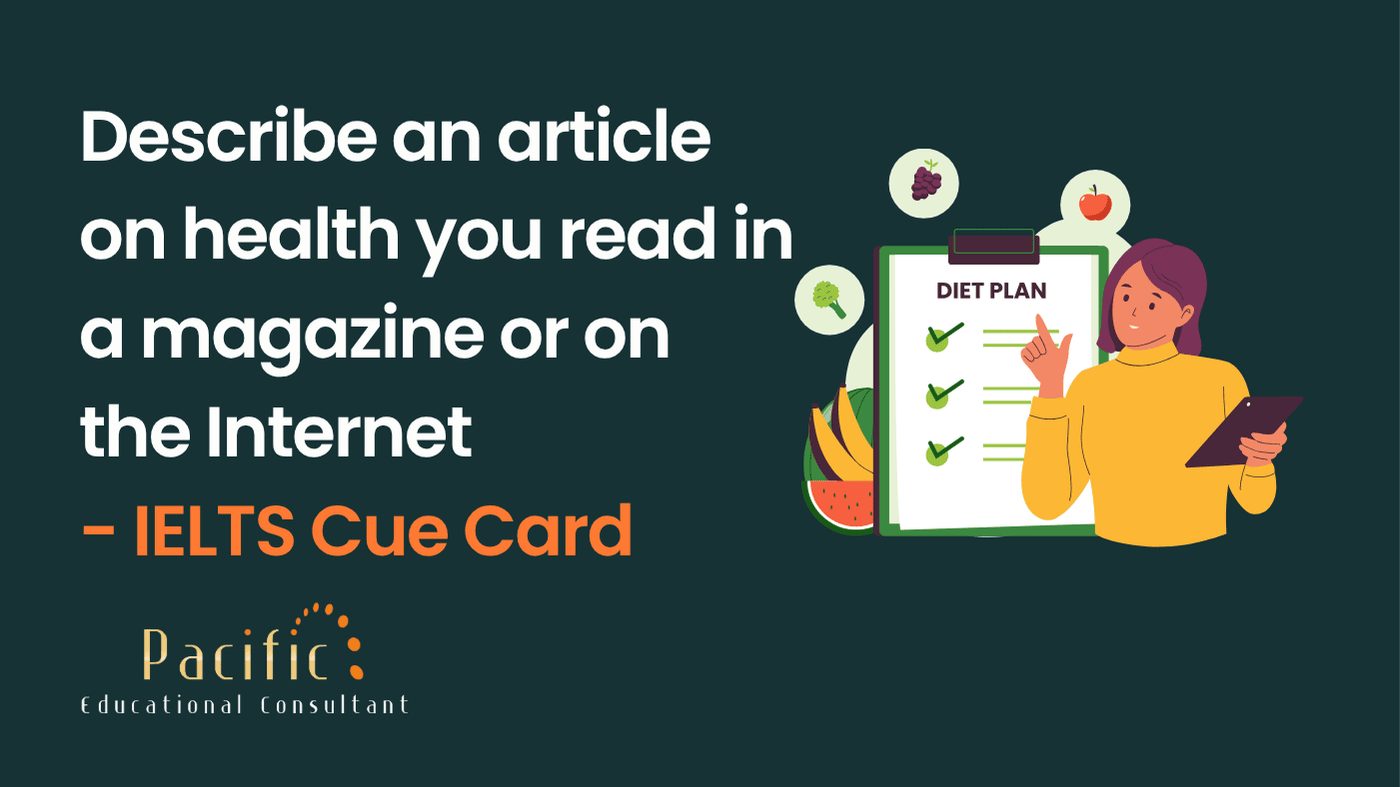


You should say:
A few weeks ago, I read an article titled “The Power of a Balanced Diet”, which focused on how eating nutritious food can significantly improve both physical and mental health. The article explained the importance of including fresh fruits, vegetables, proteins, and whole grains in our daily meals and also highlighted the harmful effects of processed and junk food.
I came across this article on the BBC Health website while browsing through online magazines. It was featured on the homepage under the “Healthy Living” section. The article was written by a well-known nutritionist, which made it even more trustworthy and informative.
I decided to read it because lately, I’ve been trying to improve my eating habits. I often feel tired due to long working hours, so I wanted to understand how food choices affect energy levels and concentration. I was also curious to know if small changes in my diet could help me feel more active and focused throughout the day.
After reading the article, I felt motivated and inspired. It made me realize that health is not only about avoiding illness but also about maintaining balance in daily life. I learned several practical tips, such as drinking enough water, avoiding sugary snacks, and having proper meals on time. Since then, I’ve started following some of the advice, and I genuinely feel more energetic and positive.
I think people today are more aware of health and fitness due to social media and medical advancements. However, many still lead stressful and sedentary lifestyles. In the past, people were more active and ate natural food, while now we rely heavily on processed meals. So, in some ways, we’re healthier, but in others, we’re not.
A reliable website usually comes from a trusted source like government organizations, well-known news agencies, or educational institutions. I always check the author’s credentials, publication date, and whether the information is supported by evidence or research. Sites ending in .org or .edu are often more dependable.
Schools can organize sports competitions, yoga sessions, dance classes, and morning fitness drills. They can also arrange health awareness workshops and encourage students to join clubs like football, cricket, or swimming. These activities help children stay active and develop teamwork and discipline.
Governments can promote good health by building parks, cycling tracks, and public gyms. They should also run awareness campaigns about balanced diets, mental health, and regular exercise. Additionally, implementing strict rules on junk food advertising and providing affordable healthcare can make a huge difference.

Canada Super Visa in Kota | Parents & Grandparents Visa Experts

Malaysia Study Visa Requirements – Fees, Process, Bank Balance

MDS in Germany : Fees, Licensing, Salary & Eligibility for Indian Dentists

PTE Reading Tips and Tricks: How to Improve PTE Reading Score

Best Architecture Colleges in the World: Ranking, Fees & Admission

Top GMAT Accepting Colleges in World for MBA

Fully Funded PhD Scholarships Abroad for Indian Students

MBA in Project Management in UK: Top Universities, Fees & Jobs

Top 10 Universities for MBA HR in Canada | Eligibility & Process

MS in Agriculture in Australia: Top Universities, Scholarships & Jobs